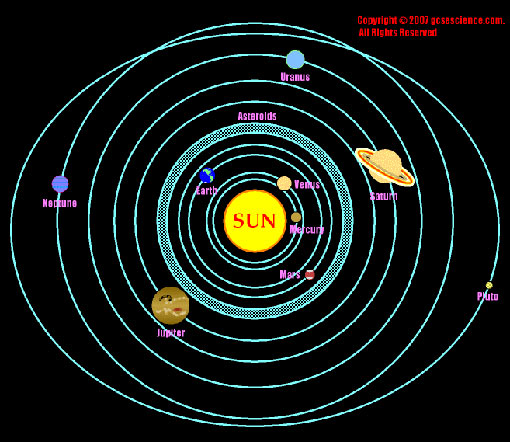The planet Uranus was discovered in 1781. Its orbital period is over 84 years. As data accumulated on its orbit in the years after it had been discovered, astronomers discovered that it did not exactly follow Newtonian predictions and concluded that there must be another planet still further from the sun. Various efforts were made to observe that hypothetical planet until Neptune was discovered in 1846 based on a prediction by Urbain Le Verrier. We now know that there are two dwarf planets further from the sun -- Pluto and even larger and more distant Eris. Thus Neptune was not the only large body unknown in the 19th century that influenced the orbit of Uranus, now was Pluto the only celestial body unknown to 20th century astronomers that was influencing the orbit of Neptune/
Astronomers discovered Neptune and Pluto by recognizing that their existing information did not adequately explain their observations, and postulating that there had to be another causal factor. It has been suggested that this process might be a suitable metaphor for other situations, including non quantitative situations. For example, trying to understand a historical battle, facing troop movements that seem unclear, a historian might postulate an alternative purpose held by the general that would explain the movement, even if you knew of no contemporary record attesting to that purpose. One might make a new and exhaustive review of diaries, memoirs and other records to see if there existed a relevant record that would substantiate the guess.
The Ptolemaic System describing the orbits of the planets assumed that they orbited around the earth. It was clear that they did not orbit in circular orbits, so epicycles were added to the circular orbit to get better approximations to what was observed. The Ptolemaic system, which was extended to epicycles on epicycles over generations had the benefit of allowing more accurate predictions of where the planets would be visible in the night sky. It had the disadvantage of substituting from a more fundamental understanding of what was going on. To us is seems like a kludge.
The Ptolemaic System too might be a useful metaphor, but on how not to add additional guesses to improve the fit of a model to observations. However, in this case if the original model is fundamentally flawed, adding new elements may make it appear more accurate but leave the understanding basically wrong.
In the case of the discovery of Neptune and Pluto there was a strong theory -- Newton's theory of gravity -- that had been validated in many other situations. Moreover, the existence of the more distant planets was verified by telescopic observations and their orbits were later plotted. In comparison, the Ptolemaic System was not a strong theory that was validated in other applications, nor were new observations possible to validate inferences that had been made.

No comments:
Post a Comment